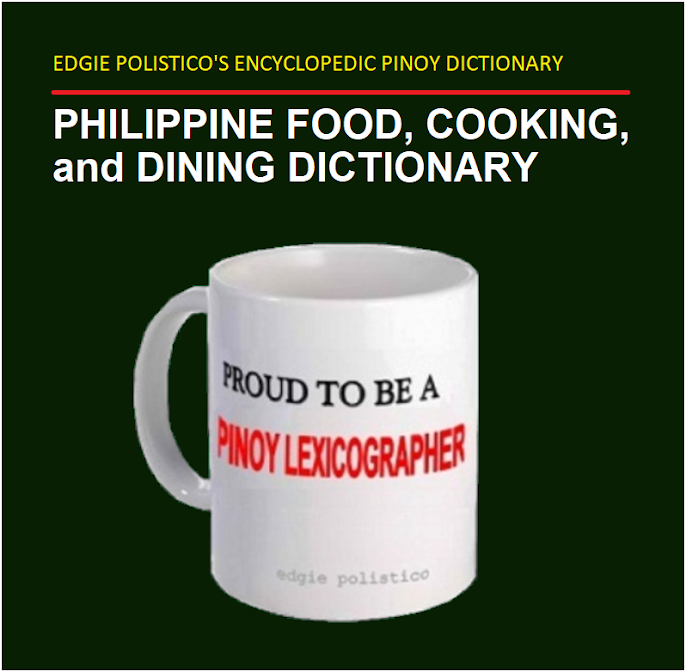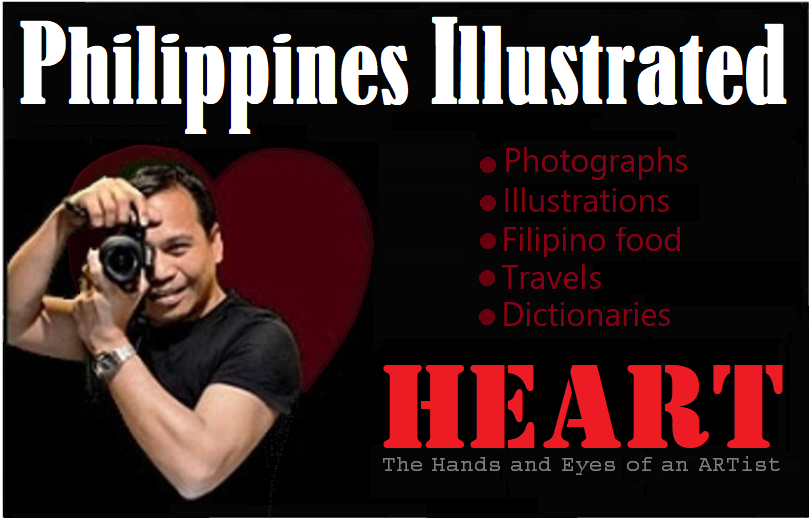+watermarked.jpg) |
This was when Compact Disc (CD) was still the popular file storage media for all your digital files. I found this CD-CD cracker from a stall in the Commercial Center of Tacloban City's downtown last summer of 2010.
CD-CD - /si-di si-dì/ (Waray [eastern Leyte] biscuit) [n.]
cracker biscuit shaped like a CD (compact disc) or DVD (digital video disc) disc.
After kneading the dough of mixed flour, baking powder, salt, and water, it is flattened into a thin sheet and a punch cutter is used to get those disc-shaped cutouts with donut holes.
The cutouts are placed in a baking tray and placed in the oven to become biscuits. Towards the end of baking, each disc is sprinkled with grains of brown or coarse white sugar that melted slightly and stuck on the surface of the CD-CD biscuit.
watermarked.jpg)
Packs of CD-CD biscuits on display for sale in the Commercial Center, downtown of Tacloban City last summer 2010.
CD-CD biscuits can be eaten as is or paired with a cup of hot coffee, or with a bottle of cold softdrink (soda).
Before, when CD (compact disc) was not yet invented, this biscuit was a small-sized disc and used to be called galyeta by the Warays of eastern Leyte. Yeah, it was the size of a mini-disc of those erstwhile applications or software file installers. And yeah, it already had its donut hole then. The bakers eventually enlarged the size to match and make it look like the bigger CD of the 1990s until the early decades of 2000s.
If you liked this post and our site, share it.
Let us know your opinion on the subject. Feel free to comment in the comment section, below. It is important for us to know what you think.
Tell us what other topics you would like us to write, share, and discuss about.
For more about Filipino food, see this Philippine Food, Cooking, and Dining Dictionary. It is OPEN and FREE.
Continue to follow my blogs. You can also follow and learn more by joining us in our Facebook group. Have more bits and pieces about our kind of food, ingredients, and ways of cooking, dining, and knowing food culture across the 7,641 islands of the Philippines. I will search for more and continue to share my findings. It is my pleasure to rediscover the known and least known things or the unheard ones and put them here for everyone to find, learn, and treasure.
Encouragement and enthusiasm are not enough. I also need moral support, prayers, and anything else that can uplift my spirit and keep my good reasons. Keep them coming. All I know is that I am happy with what I am sharing and giving away. If you are pleased and happy with what I am doing, just smile and please share the happiness. Keep sharing and include to share the PHILIPPINE FOOD ILLUSTRATED. I feel energized when my blog becomes one of the reasons why you are happy and smiling.
Edgie Polistico
+watermarked.jpg)





